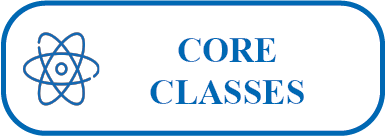Health Informatics
Health Informatics is focused on the management of health data through the application of computer technology, cognitive, information-processing, and communication strategies in healthcare practice, services delivery, education, and research. The concentration is intended to provide students with the skills, and methods for identifying, collecting and analyzing health information to inform business decisions. The MBA concentration in health informatics combines the core knowledge and concepts of business administration and equips students with knowledge of the technologies and information systems used in the healthcare industry in management and medical services.
Required Classes for HINF Concentration
The course begins with a brief overview of the US healthcare system then discusses the current use of technology in healthcare. It also discusses the collection and storage of healthcare data, patient records, and various techniques for processing medical images. Students will cover technologies that support healthcare, medical computer networks and systems and data security and protection. Actual medical applications that are used in health care and standards that guide data transactions will be covered.
This course will introduce students to HCM technology systems, tools, and products and to provide a conceptual framework for understanding how to use technology to reduce costs and improve productivity, efficiency, and effectiveness in their current and future work situations. Today's health practitioner has to use technology to find medical information and use accounting systems, personal systems, health insurance company systems, inventory systems, patient billing systems, purchasing systems, as well as input and retrieve data.
This course provides a discourse of the applications of decision sciences in health-care industry; decision modeling; cost-effectiveness analysis; DSS use in medical decision making; methods to allocate health-care resources; decision making for health economics and medicine; Monte Carlo simulations; quality-adjusted life years. Including decision modeling. Medical decision analyses will be used to describe the fields of application, methodological approaches, results and implications of medical decision analysis. Students will understand the various situations in which quantitative analysis can improve decision making and create competitive advantages SAS Enterprise Miner and Base SAS will be used.
This course presents the details of information processing in hospitals, hospital information systems (HIS), and more broadly health information systems. It presents the architecture, design, and user requirements of information systems in health care environment. It focuses on Information Technology aspects of Health Informatics specifically addressing the design, development, acquisition and deployment of HIS. The second part will equip students with the knowledge of how to address management and operational challenges faced in health informatics leadership roles within a variety of organizational settings. The course with use interactive case analysis to apply theory to real-world health informatics cases. SAS Forecast Studio will be used
This course will examine ethical, legal, and policy issues related to health informatics and the use of IT in healthcare. Analyses of these policies and their effect on clinical informatics, consumer informatics, and population health informatics will be discussed. Students will learn to develop health care solutions and strategies within the limitations of these policies. Topics of interest include the 2009 Health Information Technology for Economic and Clinical Health (HITECH) Act, the Medicare Access and CHIP Reauthorization Act of 2015 (MACRA), and meaningful use. Other regulations and policy efforts, such as HIPAA, Stark, and the CMS, as well as entities that formulate policies at the federal and state levels, such as the ONC and exchanges, will also be covered.
Click below to find the information on Foundation and Core classes of the MBA Program.
You will find information about Admission to the MBA program on the Admissions page or fill out the online application by clicking Apply button!
Career Outlook
Job Market
Dr. Jennifer Bushelle-Edghill
Ph.D. in Health Services Research at the College of Health and Human Services at the University of North Carolina at Charlotte
Email: jbushell@uncfsu.edu
Dr. Bola Ekezue
Ph.D. in Health Services Research from the University of North Carolina, Charlotte in 2011
Email: bekezue@uncfsu.edu
Dr. Norris Gunby, Jr.
Ph.D. in Health Services Administration with a specialization in Strategic Management from the University of Alabama-Birmingham and a Master's in Healthcare Administration from Tulane University.
Email: ngunby@uncfsu.edu


